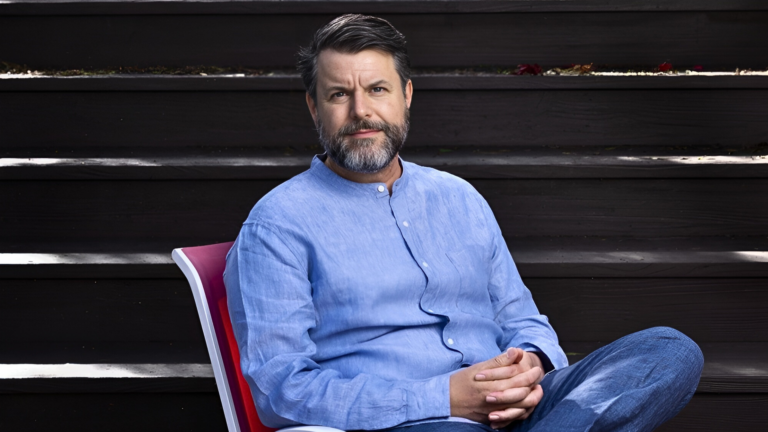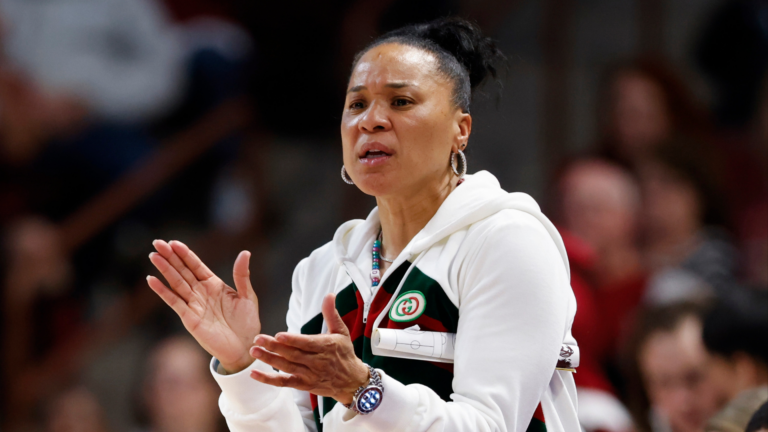This week’s conversation is with Dr. Robert Waldinger, a psychiatrist, psychoanalyst, Harvard professor, Zen master, and the director of the Harvard Study of Adult Development – the world’s longest and most comprehensive study on human happiness.
For over eight decades this incredible study has followed the lives of thousands of participants in an effort to investigate and identify what makes people flourish – all of which Robert details in his newly-released book, The Good Life.
All of us share a common thread; we’re all humans who want to live a life that matters, that’s purposeful and fulfilling. For that reason, I can’t wait for you to learn from Robert’s deep wisdom and insights – we dive into the increasing importance of true connection, the antidote to loneliness, and what it really means to live “the good life”.
This conversation is so meaningful – one that I trust will resonate whether you’re focused on the good life for yourself, your team, your business, your family, or all of the above.
“It really comes down to this – the good life is built on good relationships.”
In This Episode:
Flavors of happiness
The research is showing that there is a kind of happiness that they call hedonic well-being, and it comes from hedonism. And it’s like, am I having fun right now? Is this a good party? Is this a good meal? Am I enjoying myself? And then the other kind of happiness is called eudaimonic well-being. It comes from Aristotle, from the Greek, and it refers to that sense that life is good, that life is meaningful. And the best distinction between those two comes from a mom who’s a friend of mine, and she said, “You know, I read to my daughter before bed every night, and she always wants me to read the books again and again. So I’m there and I’m exhausted, and she’s asking me to read Goodnight Moon for the seventh time. Am I having fun? No. Is it the most meaningful thing I could imagine doing with my time? Yes.” And so the difference between hedonic well-being, having fun and doing something that we care about that’s meaningful are these two flavors. And I think what we know is that everybody wants some of both. Everybody wants some moment to moment happiness and some sense that life is basically good and my life has some meaning, but we prioritize it more or less depending on who we are.
Health and relationships
What we find when we look at these 85 years of studying the same people all the way through their lives, we find two big things. One is that taking care of your health really matters. Not a surprise, but important because the findings are so stark that you live healthier, you live longer if you know, you get exercise, if you eat right, if you don’t abuse alcohol or drugs, if you get preventive healthcare, if you don’t smoke, all that. So no surprise. But the surprise for us was that the good life is built on relationships. What we found was that the people who had the warmest connections with others and maintained those connections as they went through life, are the people who not just were happier, but they stayed healthier and they lived longer.
Social fitness
The people who were particularly good at this in our study were the people who were taking care of their relationships, making sure they reached out to people, connected with friends, invited people over, made plans. So we coined this phrase social fitness, and it was really because the analogy seemed so apt with physical fitness. You don’t go to the gym today and come home and say, good, I worked out. I’m done. I don’t ever have to do that again. We know that it’s a kind of maintenance, it’s a practice. And what we saw in our research is that social fitness is a practice. It can be small stuff. It doesn’t have to be a Herculean thing. It could be just sending a text to your friend and saying, “Hey, just thinking of you. Wanted to say hello.” And if you do those things repeatedly and make plans to take a walk or have coffee, whatever, those things keep relationships vibrant over time.
Is there a “magic number” of relationships we must have?
Maybe 150 is all we can manage [according to Robin Dunbar], but we vary a lot in how many relationships we want and need in our lives. So think about all the people who are shy, who are introverted. Those people find lots of people in their lives stressful. There’s nothing wrong with being shy. There’s nothing abnormal about being shy. It just means that you want and need fewer people as opposed to the party animals who might really want 150 people in their lives and keep up with those people. So I would say that it’s highly variable, that we’re all on a spectrum between introversion and extroversion, and that it is a matter of personal discernment what each of us needs.
Relationships affect our physical health
In the last 10 years, we’ve been studying and many other research groups have been studying how relationships get into our bodies and change them. And it seems to be about stress and stress regulation, that loneliness and social isolation are stressful. That if I have something upsetting happen during the day, I can literally feel my body rev up. I can feel it go into fight or flight mode. My heart rate goes up. I might start to sweat. My blood pressure goes up. That’s normal. That’s to be desired actually, to meet a challenge. But then when the stressor is removed, the idea is we should go back to equilibrium, to baseline. What we think happens is that if something upsetting happens and I can go home and talk to my wife, or I can call a friend, I can literally feel my body calm down as I share that stress with somebody else. People who are isolated, people who are lonely, we believe stay in a kind of chronic fight or flight mode.
Ok, how does the relationship with self stack up?
The relationship with self is hugely important. And we had people who would tell us, I don’t think people like me, or I don’t think people want to be with me, or I feel like a failure. And that negative self-image was really impactful in keeping people away from others, in making people misinterpret reactions of other people. And so we know that there’s a great deal that goes on inside that shapes how we behave and then other people react to us that way. So actually, they did a study where they found that lonely people give off a vibe without realizing it that says, don’t come near me. And they also found that lonely people get lower quality care from their primary care providers in medicine. That there’s something about the signals that lonely people give off that has people keep their distance many times. And so there’s actually a whole field now of cognitive behavior therapy where they try to teach lonely people some of the skills to undo some of the dysfunctional beliefs.
Who has your back?
It’s a lifeboat in two ways. Relationships help us through the hard times. So if you think about it, when something bad happens, in fact, we asked our guys, our initial subjects, at one point we asked them, “Who could you call in the middle of the night if you were sick or scared?” And most of them could list several people. Some of them couldn’t list anybody. And as far as we know, everybody needs at least one or two relationships where people, somebody has your back. And so relationships do that for us on the side of helping us manage hard times. But there’s also so much energy that we can derive from relationships and so much help. Because we can’t. This myth of the self-made man, and it’s usually the man who thinks of himself as self-made, is a total myth. The idea that we don’t rely on anybody else. We don’t stand on any other shoulders. Really, we’re standing on other people’s shoulders all the time with everything we do. And that when we acknowledge it and we leverage it, it’s huge.
The study is focused on men only. Are there unique findings for women?
The differences weren’t as great as we thought they would be. I mean, I think that I’ve been steeped in a lot of research and media about gender differences and the importance of gender differences. But when we looked at those gender differences, not just in our study, but in the whole literature, they weren’t as great as we thought. That relationships are important to men as well. Women are better at being socially connected. I think because of their socialization, they have been raised to value social connection. Women are more apt to confide in each other. They’re more apt to share with each other things about their private lives and their emotional lives. Men are more transactional and they do more stuff together. But what we find is that the gender differences aren’t so great.
Friends at work
The Gallup survey of 15 million workers asks the question, “Do you have a best friend at work?” Only 30% of people have a best friend at work. But those people are more engaged with customers. They do higher quality work. They are less likely to leave for another job that makes a better offer. And the people who don’t have a best friend at work, so 70%, only one in 12 say they feel engaged in their jobs. So 11 out of 12 of that 70% are checked out. Okay, you can say, I don’t have time for that. It’s too expensive. It’s too messy. But at your peril, Mister or Miss CEO, that’s my argument.
Emotional leaders
What we find is that the CEOs, those emotional leaders, the CEOs who are tuned into the emotional climate of teams and of their workers are the people who over time get best results. What we know, and I think this is from some good business school studies, is that leaders who lead through fear get good results immediately and then they tail off. And then there’s resentment, there’s passive aggression, there’s all kinds of stuff. So you can start out looking good if you’re a leader who leads via fear, but otherwise it’s those engaged galvanizing leaders that do much better. Let’s say you are not the one to feel like you can do that. Well, first of all, you can be coached. As I’m sure you know, you can be coached to get better at it. And you can bring around you a team of people, some of whom have those skills and can really set up the workplace and model behaviors in ways that prioritize teamwork, connections, cooperation.
Purpose
For many people, for many workers, knowing why am I doing this is huge. And so I think having a purpose in an organization matters a lot. Actually, I worked with a big telecom company in Europe. What they decided was that they were going to reconfigure their mission so that it was about human connection. So it’s telecoms, right? So it’s telephone and internet connections. But what they decided was we really want people to know that they are helping people connect with each other. And when they did that, then they began to foster more connections among their workers. But it was with that overall umbrella of, and we’re all trying to foster connections in our larger society. And so I think that having that North Star of a purpose for the organization of a mission is pretty valuable. That won’t light up everybody. Some people won’t care about that, but you can help other people find different purposes.
Does money make us happy?
Ultimately, once you get your basic needs met and you have some nice things in your life, there are diminishing returns in going after more of that. Similarly, it’s getting awards. So I’m in academia where the coin of the realm is professorships and awards of various kinds. And what you find is that after a while, it doesn’t do it. Many people will say, oh my God, I worked for 30 years to become a professor, and now here I am and nothing much has changed. So what we find is that doing these things isn’t worthwhile and meaningful. It’s that the badges of achievement, whether they’re achievement in wealth or achievement in your profession or whatever, that the badges of achievement don’t keep us warm at night, but the work itself does.


